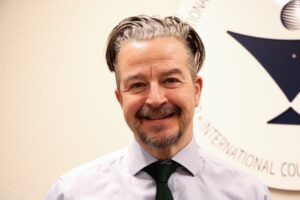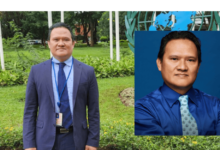Cautious optimism after UN pledge on universal healthcare

An influential global nursing body has welcomed a “re-commitment” from the United Nations (UN) to aim for global universal health coverage by 2030 – and hopes world leaders recognise the crucial role of nurses in delivering it.
Howard Catton, chief executive of the International Council of Nurses (ICN), told Nursing Times that a public health, preventative and nurse-led approach to universal healthcare was needed to meet the UN’s goal.
“This is overwhelmingly nursing work”
Howard Catton
During a meeting in New York last week, UN member states signed a political declaration committing to “accelerate” efforts to bring about universal health in every country in the world in the next seven years.
They affirmed that all humans “without distinction” have the right to the highest-attainable standard of physical and mental health.
This proclamation saw world heads of state agree that universal health coverage should be implemented as fast as possible, with “firm commitments” to facilitate it by investing in primary healthcare.
Mr Catton welcomed this part of the declaration in particular, and said a preventative model with an overwhelming investment in nursing was the best way for any country to implement universal health coverage.
“[The ICN] has been fully supporting the global commitment for universal health for a number of years now,” said Mr Catton.
“Healthcare is a fundamental, and the pandemic made that brutally obvious and clear for us all,” he told Nursing Times.
“The thread that runs through [it] all is that primary healthcare is the best way healthcare issues get addressed and solutions delivered. People recognise it, but what not everyone recognises is that this is overwhelmingly nursing work.”
During discussions at last week’s UN meeting, delegates mentioned the underfunding of current national health systems and concerns about health worker shortages, which are – according to the UN – set to reach 10 million by 2030.
Mr Catton said: “In a high-income country with a health service like the NHS, people might think: what’s the big deal?
“Half the people in the world don’t have access to healthcare, they don’t have access to what we might consider fundamental public health: prevention, education, advice, maternity, sexual and reproductive health as first contact points.”
Mr Catton said the UN’s recognition of primary care as a fundamental for building universal healthcare must now be “joined up”, in the minds of world leaders, to nursing.
This, he added, meant that UN member state countries should now look to put their money where their mouth is – and invest in nursing.
He said: “If you look at nursing roles and interventions in and outside of hospitals, in community and primary care, nurses support people with health emergencies and they help people with chronic conditions.
“We cover the whole spectrum, and have the trust of communities and people across the world,” he said. “We’re seeing nurse-led models of care at the forefront of how we deliver universal healthcare and solve problems.”
As an example, Mr Catton pointed to a new nurse-led primary care initiative in Japan, which the country’s health leaders are using to address problems stemming from its significant ageing population.
“It’s a major challenge,” Mr Catton said. “They are dealing with it taking a community and public health-led approach.
“It’s seen real terms increases in the number of nurses who are working in community non-hospital settings. But these things don’t happen just because you wish it,” noted Mr Catton.
“You need the career pathways, the education, the preparation and you need to have the community roles – and you need to have, often, a health system that funds them.”
Mr Catton said that, if the UN’s aspirations for universal healthcare are to be met, out-of-hospital nursing must take “centre stage” in the way world leaders tackle health crises.
The ICN leader said that he was “positive” that this had already begun to happen in some countries.

Howard Catton
As well as the positive steps he observed in Japan, he said a conversation between the ICN and Canadian prime minister Justin Trudeau made him optimistic that G7 leaders were willing to put trust – and money – in nursing and public health.
“If you can’t deliver health services because you haven’t invested in staff, waiting times grow, needs increase, and those needs become more complex and costly,” said Mr Catton.
“You’re continually chasing your tail and there are real people suffering health harm and loss of independence as a consequence.
“But, let’s not kid ourselves, this is one of the most difficult periods in recent history to make the case for investment,” he noted.
“It’s important to keep bringing forward nursing in a positive, solutions-based light and nursing leader should be advising on the design of new health systems,” he stated.
The UN leaders, during their meeting, also declared that universal health coverage was both a human rights issue and a political one.
World Health Organisation (WHO) director-general Tedros Adhanom Ghebreyesus told the UN that achieving it was a “political choice”.
Ghana first lady Rebecca Akufo-Addo added: “Let’s make the political choice of universal health coverage. Health must be accessible to all. If we want to, we will get there.”
The UN delegates conceded that little progress had been made since the last time such a declaration had been made, back in 2019.
UN General Assembly president Dennis Francis, of Trinidad and Tobago, said universal health must be a priority due to the number of people falling into poverty due to the cost of healthcare.
“Health and sustainable development are two sides of the same coin,” Mr Francis said.
ICN president Dr Pamela Cipriano, who represented the organisation at the meeting, added: “The political declaration gives governments an opportunity to make a clear-sighted and enduring change that will make a real difference by giving everyone equitable access to the health care that they need.
“Governments must not only make these commitments. they must follow through with the necessary investment to make these historic changes a reality that will benefit many millions of people who currently have little or no access to basic health care.
“Universal Health care can only be achieved through having nurses working closely with individuals, families and communities in their homes and neighbourhoods,” she said.
“Just about everything that makes up good primary health care is within the remit of nurses, and the countries of the world need to make the effort required to put nurses where they are needed most, and that is alongside patients in their everyday lives.”







